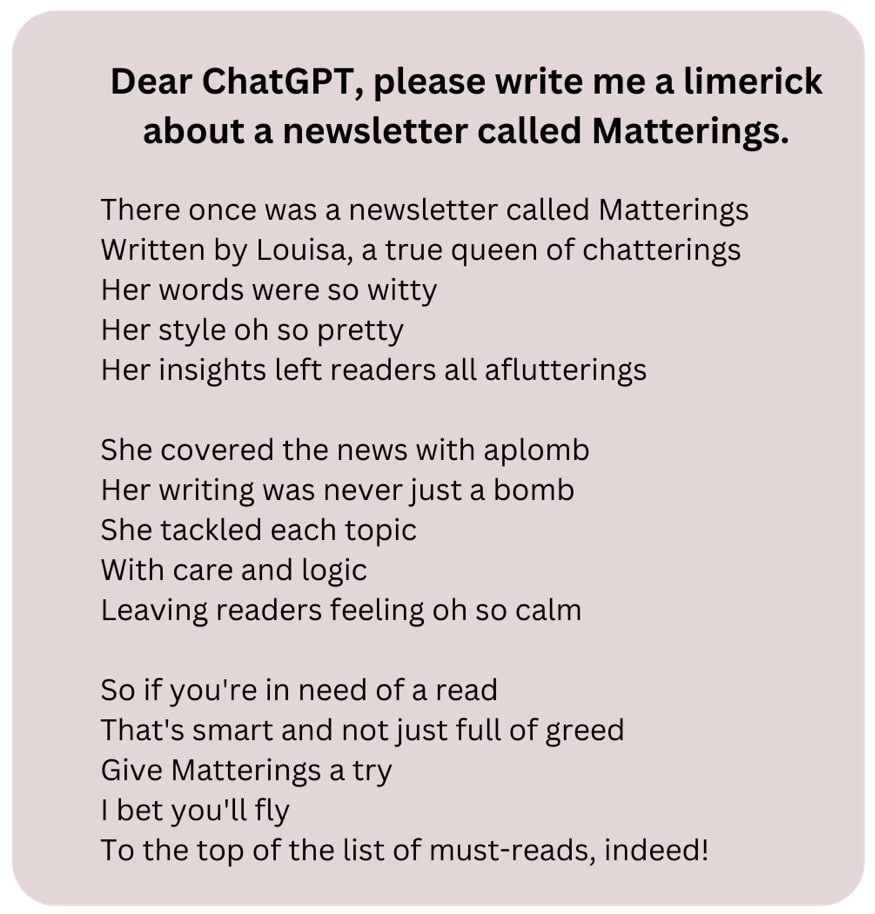I’ve been playing around with OpenAI’s new platform ChatGPT. An artificial intelligence product, it uses deep machine learning to trawl vast volumes of information – hundreds of billions of data – to generate responses to questions. It can create stories and write poetry in any style you request.
Until recently, robotic writing tools were disappointing. If you’ve searched online for a product or service review, you’ve probably stumbled across the clunky and repetitive result.
ChatGPT is a game-changer.
As Stephen Brook points out in The Sunday Age, it will revolutionise the writing of Christmas cards, thank-you notes and best-man speeches.
Teachers are rightly worried about what it means for student assignments.
And there is a great deal of online commentary about ChatGPT (or similar programs because you can be sure others will follow) being the death of blogging and quality thought leadership.
But I believe that’s unlikely.
Because for all its smarts – and it has plenty of them – ChatGPT is just an algorithm searching the interwebs and cleverly pulling together what it finds.
It’s been described as the world’s most sophisticated parrot. And when budgies, macaws, cockatoos and cockatiels speak, all they’re doing is parroting back stored information.
What’s missing is originality—a spark of humanity. The emotional intelligence we bring when we think deeply about our words.
Have you tried ChatGPT? It’s pretty incredible.
But it’s not going to replace you any time soon.
